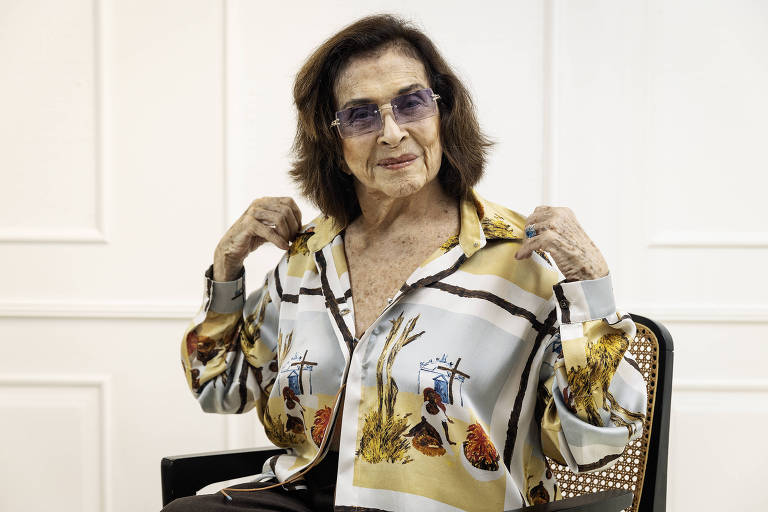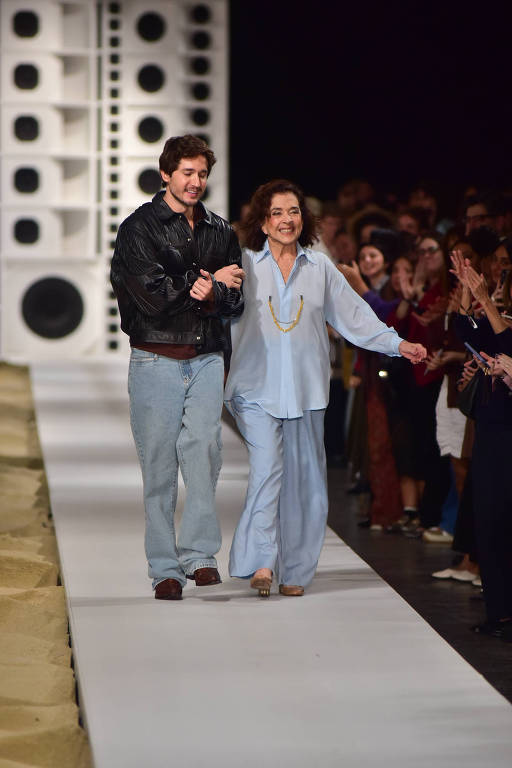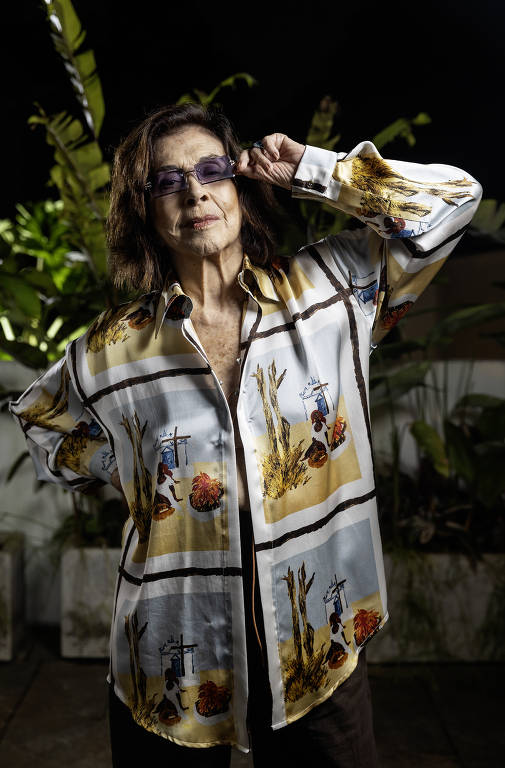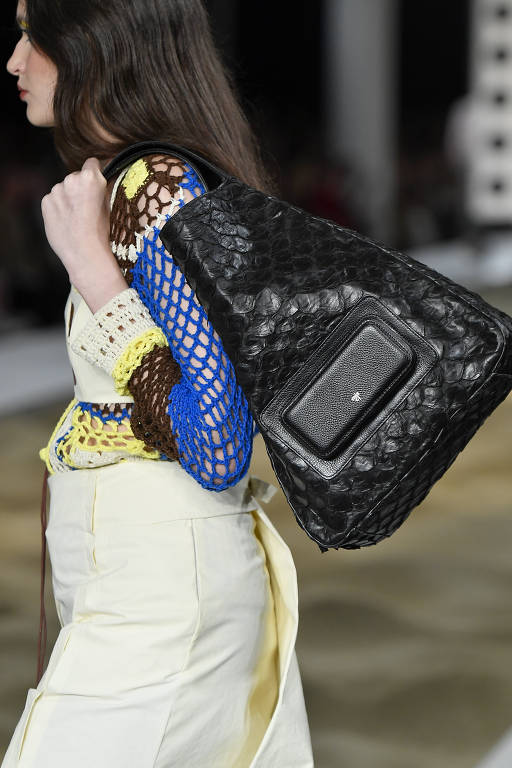Betty Faria says she made 'Tieta with a gay soul' and that it's 'boring' to talk about ageism

Betty Faria is like her Tieta , but not always. At 83 years old, the actress says she is as rebellious as the most emblematic character she has ever played — she complains, for example, about the rise of conservatism, criticizes the limitations that Donald Trump has imposed on transgender people in the United States and claims that Jair Bolsonaro and other political leaders around the world represent a traditionalist sect.
Every now and then, however, she rolls her eyes and says things that could, today, be associated with a conservative. This is the case when she says she disapproves of women who reach middle age complaining about a lack of opportunities.
"I think it's annoying, I'm embarrassed. I'm against complaining a lot, I don't do whining," she says. "I don't use the word ' ageism ' because it's very fashionable. I feel it, yes, from the moment I wake up, but I get over it. I'm living and working and I think that this way I can set a good example for women who are losing their way. That's what interests me more."

Honored at a Misci fashion show in late April, the actress walked down the catwalk with a steady gaze, sometimes smiling, but without much frills—she only stayed there for a few minutes. She didn't even rip off the label on her clothes, visible under the transparent fabric of her blue shirt, which was loose on her body. She was also wearing pants of the same color and brown shoes on her feet. The event took place at the Fundação Bienal, in Ibirapuera Park, in São Paulo.
"I like fashion, but I'm very basic. I'm a pretty, tidy, vain, well-groomed little old lady. But I don't have a facelift. If I did, I could only play a rich character," she says.
Faria entered arm in arm with Airon Martin, creator of Misci, who organized the fashion show to pay homage to "Tieta", a 1989 soap opera that boosted the actress's career when she was 48 years old. To this end, the designer designed looks that recall the Northeast and sensuality, symbols of the character, with prints inspired by the fauna of the caatinga.
Tieta is considered one of the most charming figures on TV. The soap opera is being re-aired on Globo in the afternoon, on Vale a Pena Ver de Novo, with good ratings. "I was delighted with this return. I wonder why they like her so much, so rebellious, given this increasingly traditionalist world. The current generation is very repressed, so I was surprised", says the artist.
In the plot, Tieta is thrown out of her home for being considered libertine and immoral. In São Paulo, she becomes the owner of a brothel, becomes rich and returns to her hometown. With a desire for revenge, she confronts her sister Perpétua, played by Joana Fomm .
The soap opera became a landmark in television drama. "It was a gift. Tieta brings hope, freedom, and talks about respect for differences. She had a friend, Ninete, played by Rogéria, who was trans. My character was above prejudice. I played Tieta with a gay soul," says Faria.

Such a huge impact earned her a permanent contract with Globo, which is still valid today. She is one of the few actresses from her time who are still employed by the network, which in recent years has broken off agreements with most of its cast, even the most famous ones. The artist's last work was in the 7pm soap opera "Volta por Cima", which ended two weeks ago.
In it, she played a woman in debt. At the time of its premiere, Faria said she thought it was revolutionary to hire black actors for the main cast. "There weren't any in my time. There was a great black actor, Milton Gonçalves, and a great actress, Léa Garcia . Today, we have Taís Araujo taking the 9pm soap opera by storm. There has been a huge evolution."
The actress, who says she loves soap operas, says she is keeping an eye on the new "Vale Tudo" and approves of the production of remakes. "I like it. I'm not a reactionary person. We have wonderful young actors," she says, remembering the beginning of her career. "My relationship with Globo is as follows: I opened the network. How crazy. When I look back, I can't believe how much time has passed."
She made her first soap opera in 1969, four years after Globo was founded by Roberto Marinho, and says she is "happy to continue being called to work".
After 15 minutes, the Misci team interrupted the interview. The brand's team told her that she needed to rehearse the show and that she could finish the conversation later. But she dismissed the idea. "I'm not going back. I told him everything. You're already happy, right?", said the actress, looking at the reporter. "Wasn't the interview cute?"
uol







